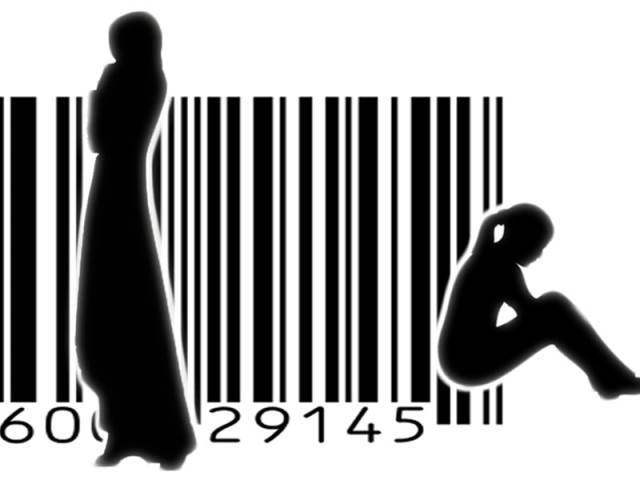For trafficking victims, the ordeal never ends
Lack of legislation keeps justice beyond the reach of those kidnapped by prostitution rings.

Still, her husband sees her far from being the perfect homemaker. He never ceases to remind her that he “picked” her up from the street. “You’ve been with so many men,” he says.
“He doesn’t respect me at all,” says Zainab with tears in her eyes. “When he is angry, he abuses me and beats me. He says I deserve to be treated this way.”
Zainab is among hundreds of women who have been kidnapped from one part of the country and forced into prostitution in another. Since the state does not recognise internal trafficking – the smuggling of people from one city to another within the country, for use as bonded labourers and sex workers – women like her find it hard to get justice or find happiness, if they are lucky enough to escape.
Zainab’s misery began in May 2008 when she was picked up from her neighbourhood in North Karachi. Human rights activists involved with her case feel her mother may have been involved. They say she had connections with a woman named Taju, who allegedly ran a trafficking network.

“I saw Taju several times in my home with a man called Babul,” Zainab told The Express Tribune. The two with three other accomplices abducted Zainab and her five-month ordeal began where she was gang-raped and forced into prostitution. Occasionally drugged as well, she was forced to lie to her father that she had eloped with Babul and was now married to him, a common way of taking the women’s family into confidence, activists say. However, towards the end of that phone conversation, she managed to tell her father that she was being exploited.
Her father registered an FIR at the Ajmer Nagri police station, but the case was registered under section 496(A) for unlawful marriage.
Zainab was severely beaten after the phone call and sold to a man in Islamabad who then took her to Multan where she was abused, force-fed and tied to her bed every night. One day Zainab untied her ropes and managed to flee in a burqa only to be caught and sold to another prostitution ring.
“There were several other women with me at the new place. Here, the men would film us as well.” Zainab did not give up. She made another attempt and this time was successful.
But Zainab can find little happiness in her life. “Those who exploited me are still carrying on their business. While I escaped, there must be several other girls forced to be sex workers,” she says.
Her father closed the police case. He maintains officials were unwilling to help and instead blamed Zainab.
Taranum Khan from the Human Rights Commission of Pakistan (HRCP), who dealt with the case says that while Zainab was lucky to be united with her family, there are hundreds more who have disappeared without a trace.
No law on internal trafficking
The absence of laws pertaining to internal trafficking means authorities, such as the Federal Investigation Agency (FIA), cannot investigate or prosecute culprits. Khan says the victim’s family is usually only able to register a kidnapping case in such instances.
Under the Prevention and Control of Human Trafficking Ordinance 2002, FIA only deals with human trafficking into and out of the country. Former head of the agency’s anti-trafficking unit, Azam Khan says, “It is unfortunate that there is no special law on internal trafficking in the country. Sexual exploitation and bonded slavery could be prevented to a great extent if there were any provisions for dealing with it.”
Women from Pakistan’s Bengali, Burmese and Seraiki communities were most vulnerable to traffickers, maintains social activist Rana Asif. “Not only are these communities extremely poor but also the Bengalis and Burmese women don’t have NICs. They are not considered citizens therefore it is easy to smuggle them within the country.”
*NAME HAS BEEN CHANGED TO PROTECT VICTIM’S PRIVACY
Published in The Express Tribune, December 8th, 2012.



1724319076-0/Untitled-design-(5)1724319076-0-208x130.webp)















COMMENTS
Comments are moderated and generally will be posted if they are on-topic and not abusive.
For more information, please see our Comments FAQ